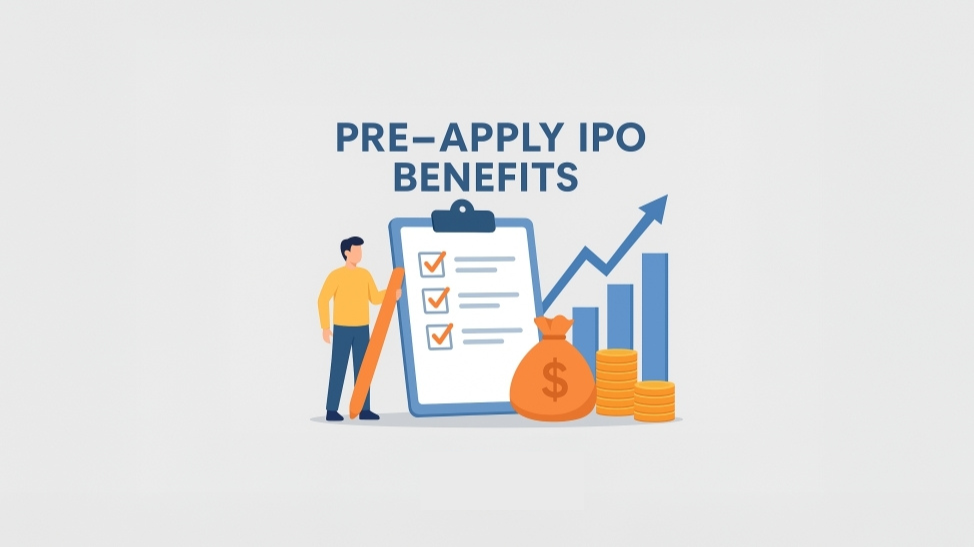Types of Mutual Funds In India: A Detailed Guide

- Published Date: July 27, 2022
- Updated Date: June 17, 2025
- By Team Choice
Mutual funds have garnered significant attention as a go-to investment option for many individuals. These funds offer diverse choices tailored to different investment needs and preferences. Being a beginner or a advanced investor one should always consider investing in mutual funds given their benefits and various types that serve selective needs of the investors. Let's delve into the various types of mutual funds and understand their nuances.
Introduction To Mutual Funds
Mutual funds operate by pooling funds from multiple investors to invest in a variety of assets such as stocks, bonds, and money market instruments. Managed by professional fund managers, mutual funds provide investors with access to a diversified portfolio, professional expertise, and liquidity.
Understanding Different Types of Mutual Funds
Below is the list of all Mutual Fund categories
Equity Funds
Equity funds predominantly invest in stocks or shares of companies. They can focus on large-cap, mid-cap, or small-cap stocks, catering to investors with varying risk appetites and return expectations.
Debt Funds
Debt funds primarily invest in fixed-income securities such as government bonds, corporate bonds, and debt instruments. These funds aim to provide stable returns and are suitable for investors seeking regular income and capital preservation.
Money Market Funds
Money market funds invest in short-term, low-risk securities such as Treasury bills and commercial paper. These funds prioritize liquidity and safety, making them ideal for investors with short-term investment horizons and liquidity needs.
Hybrid Funds
Hybrid funds, also known as balanced funds, invest in a mix of equities and debt instruments. These funds offer investors a balanced approach to investing, combining the growth potential of equities with the stability of debt securities.
Exploring Mutual Funds Based on Investment Goals
Growth Funds
Growth funds focus on capital appreciation by investing in stocks of companies with high growth potential. These funds are suitable for investors with a long-term investment horizon and a willingness to tolerate higher levels of risk.
Income Funds
Income funds aim to generate regular income for investors by investing in fixed-income securities such as bonds and dividend-paying stocks. These funds are suitable for investors seeking a steady stream of income while preserving their capital.
Liquid Funds
Liquid funds prioritize liquidity and safety by investing in short-term debt instruments. These funds offer investors easy access to cash and stability of principal, making them ideal for short-term investments and emergency funds.
Tax Saving Funds
Tax saving funds, or Equity Linked Savings Schemes (ELSS), offer tax benefits under Section 80C of the Income Tax Act. These funds primarily invest in equities and have a lock-in period, making them suitable for investors looking to save on taxes while participating in equity markets.
Aggressive Growth Funds
Aggressive growth funds aim to maximize capital appreciation by investing in high-risk assets such as growth stocks and small-cap companies. These funds are suitable for investors with a high-risk tolerance and a long-term investment horizon.
Capital Protection Funds
Capital protection funds focus on preserving the principal amount while providing modest returns. These funds invest in a mix of equities, debt, and money market instruments to achieve capital protection and stable returns.
Fixed Maturity Funds
Fixed-maturity funds have a predetermined maturity date and invest in fixed-income securities. These funds offer investors a defined investment horizon and a fixed rate of return, making them suitable for investors with specific financial goals and time horizons.
Pension Funds
Pension funds aim to create a retirement corpus for investors by investing in a mix of assets. These funds offer tax benefits and retirement planning solutions, making them suitable for individuals planning for their post-retirement financial security.
Mutual Funds Structure: Open-ended, Closed-ended, Interval Funds
Mutual funds can be structured as open-ended, closed-ended, or interval funds, each offering different features and benefits to investors.
Assessing Risk: Various Risk Levels in Mutual Funds
Very Low-Risk Funds
Very low-risk funds invest in low-risk securities such as government bonds and money market instruments. These funds aim to preserve capital and provide stability of returns to investors.
Low-Risk Funds
Low-risk funds invest in relatively safe assets such as high-quality bonds and blue-chip stocks. These funds aim to generate regular income and moderate capital appreciation while minimizing downside risk.
Medium Risk Funds
Medium-risk funds invest in a mix of equities and debt instruments to achieve a balance between risk and return. These funds offer moderate capital appreciation and income generation while managing volatility and market risk.
High Risk Funds
High-risk funds invest in high-risk assets such as growth stocks and emerging markets. These funds aim to maximize capital appreciation by taking on higher levels of risk and volatility.
Conclusion
Mutual funds offer investors a plethora of options to meet their investment objectives and financial goals. Whether seeking capital appreciation, regular income, or capital preservation, there is a mutual fund suitable for every investor's needs. Investors need to assess their risk tolerance, investment horizon, and financial objectives before investing in mutual funds.
FAQs
How do I choose the right mutual fund for my investment goals?
- Investors should consider factors such as risk tolerance, investment horizon, and financial objectives when selecting a mutual fund. Conducting thorough research and seeking professional advice can help investors make informed decisions.
What are the fees associated with investing in mutual funds?
- Mutual funds may charge fees such as expense ratios, management fees, and sales loads. It's essential for investors to understand these fees and their impact on investment returns before investing.
Are mutual funds suitable for long-term investing?
- Yes, mutual funds can be suitable for long-term investing as they offer the potential for capital appreciation and income generation over time. However, it's essential for investors to choose funds that align with their long-term financial goals and risk tolerance.
Can I invest in mutual funds through a systematic investment plan (SIP)?
- Yes, investors can invest in mutual funds through a systematic investment plan (SIP), which allows them to invest a fixed amount regularly over time. SIPs offer the benefit of rupee cost averaging and disciplined investing.
What are the tax implications of investing in mutual funds
- The tax implications of investing in mutual funds depend on factors such as the type of fund, investment duration, and investor's tax bracket. Investors should consult a tax advisor to understand the tax implications of their investments.
Recommended for you

Pre Apply IPO Benefits

Defence & Aerospace Crucial for आत्मनिर्भर BHARAT

Why Have Mutual Funds Become A Go-To Investment Choice in Recent Times?
